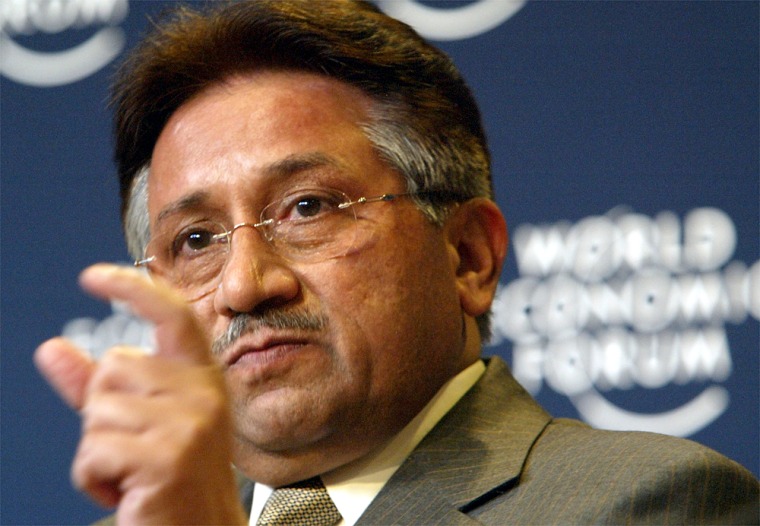Pakistan’s president vowed Thursday to prosecute any scientists found to have sold atomic secrets amid growing suspicion that Pakistani experts aided the nuclear programs of Iran, North Korea and Libya.
President Gen. Pervez Musharraf said his government has never exported nuclear know-how, but he said it was possible individual scientists may have sold secrets.
“We are carrying out a thorough investigation of any proliferation that may have been done by any individual for their personal financial gain,” Musharraf told a conference of government and business leaders at the World Economic Forum in Davos. “We will deal with them as anti-state elements.”
For years Pakistan has scoffed at reports that its scientists might have been involved in proliferation.
Centrifuges to Libya
But the country started hedging in December, saying individuals motivated by ambition or greed may have sold secrets, after U.N. inspections of Iranian nuclear facilities showed that “Pakistani-linked individuals” had acted as “intermediaries and black marketeers.”
Pakistani scientists were later implicated in a scheme to sell high-tech centrifuge technology to Libya, and have also been named in probes into North Korea’s nuclear program.
Pakistan has acknowledged holding “five to six” scientists and administrators for what it calls “debriefings.” Most have not been released, relatives say, and no formal appearances or charges have been made in court.
“Let me assure this gathering that Pakistan is an extremely responsible state,” Musharraf said. “All the nuclear and strategic assets are under total custodial control. The Pakistan government has never and will never proliferate.”
The head of the U.N. atomic agency, Mohamed ElBaradei, said the allegations involved a “very sophisticated network of black market” operators and said he had not seen any evidence that the Pakistani government was involved.
IAEA chief weighs nonproliferation ideasElBaradei, director-general of the International Atomic Energy Agency, said he had ideas to improve nonproliferation efforts in the wake of disclosures about Pakistan.
“Clearly, it needs to be looked at,” he said. “The (inspection) regime is under a good deal of stress.”
Musharraf said his government is also trying to crack down on extremists. He survived two bombings last month believed to have been carried out by Islamic militants, who despise him for allying Pakistan with the United States in its war on terrorism.
“We are fighting the al-Qaida and Taliban on the western borders (with Afghanistan), and we want to negotiate a peaceful settlement of the Kashmir dispute with the Indians on the eastern one,” he said. “At the same time we are fighting sectarian and religious extremism within our country.
Musharraf upbeat“So I’m treading on a lot of toes, and that has led to these extremist attacks on me, but I call them occupational hazards. And I also believe that I haven’t outlived my nine lives as yet. I have a number of lives left still.”
Musharraf said he believed his efforts to bring “sustainable democracy” to Pakistan had taken root and would survive.
“Islam is not in conflict with democracy, modernism or secularism. Islam is democratic in essence. It believes in human rights, freedom of speech and freedom of expression.”
He said there also was progress toward good governance in Afghanistan and that the search for Osama bin Laden, believed to be hiding the Afghan mountains, can continue “simultaneously with stability.”
